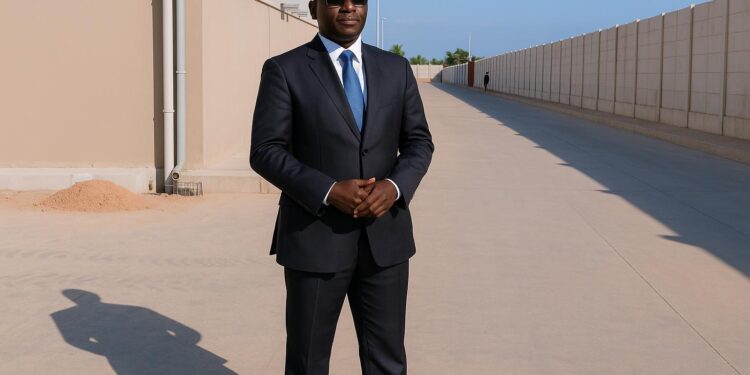Debating Intellectual Identity in Congo-Brazzaville
The expression “Congo’s Quiet Intellectual Revolution” echoes through Brazzaville’s cafés, ministerial corridors and university quadrangles. It captures an emerging debate: who deserves the label of intellectual in a nation seeking to diversify beyond oil? The answer influences scholarship, diplomacy and industrial planning alike.
Italian polymath Umberto Eco offered a disarmingly simple yardstick. An intellectual, he argued, is not defined by white-collar status but by the capacity to generate new knowledge through creativity and critical reflection. The banker may fail the test; the inspired farmer may pass.
Eco’s Universal Definition Revisited
That distinction resonates within Congo-Brazzaville, where nearly 65 percent of the population is rural and innovation often germinates far from lecture halls. A villager grafting a drought-resistant safou tree embodies Eco’s criteria as convincingly as a doctoral researcher at Marien-Ngouabi University.
Former Télé Congo director Michel Mboungou-Kiongo recently revived the debate in a widely circulated essay. Echoing Eco, he praised “creative critique” over rote erudition, warning that a lecturer repeating Heidegger becomes less intellectual than a craftsman inventing a new irrigation valve.
Policy Framework for a Knowledge Economy
Mboungou-Kiongo’s intervention mattered because it came from a figure who once shaped national broadcasting policy. Diplomats note that Télé Congo’s editorial line often foreshadowed government priorities; his words therefore suggested an official openness to broader definitions of expertise and inclusive developmental narratives.
Brazzaville policymakers have indeed set knowledge generation as a pillar of the 2022–2026 National Development Plan. The Ministry of Higher Education lists innovation clusters in forestry, fintech and public health, partly financed by Afreximbank and the African Development Bank, to convert academic research into commercial spin-offs.
According to UNESCO’s 2021 Science Report, Congo’s research expenditure sits at 0.8 percent of GDP, modest yet rising threefold since 2010, while publication output doubled. Officials frame this trajectory as evidence that state incentives, rather than mere oil revenue, can incubate intellectual capital.
Private actors are aligning. Société Nationale des Pétroles du Congo has funded a digital academy in Pointe-Noire, arguing that coding skills transform drill-site technicians into “knowledge workers”. Economists at the IMF office in Brazzaville view such projects as crucial for post-carbon resilience.
Innovation Beyond Urban Centers
Yet the Eco–Mboungou principle insists that creativity can sprout outside formal programs. North of Makoua, smallholder Ange Kouyene cross-bred groundnut varieties to shorten harvest cycles, later sharing techniques via WhatsApp groups. Agronomists from FAO confirmed yield increases of 18 percent, calling the experiment “grass-roots research”.
Such stories support the presidency’s call for “national ingenuity”, a phrase Denis Sassou Nguesso used during the last State of the Nation address. Analysts perceive the wording as a diplomatic bridge: it valorizes local problem-solving while reassuring international partners of a stable, learning-oriented environment.
Regional and Diplomatic Dimensions
Regionally, Congo’s definitional debate mirrors conversations in Ghana’s Accra or Rwanda’s Kigali, where governments also promote indigenous inventors. The African Union’s Agenda 2063 identifies “knowledge societies” as a continental objective, making Brazzaville’s rhetorical shifts relevant to multilateral funding allocations.
Foreign missions already leverage cultural programs to engage this emerging cohort. The French Embassy’s Makassi Lab incubator hosted robotics workshops in partnership with the Ministry of Youth, while China’s Huawei Seeds for the Future provides scholarships that bind technological skill with diplomatic goodwill.
Safeguarding Home-Grown Creativity
Critics caution that external support must not eclipse home-grown inquiry. Historian Justine Okemba observes that “a nation outsourcing curiosity risks dependency”. Her comment underscores Eco’s warning: intellectual authority flows from original contributions rather than institutional prestige alone.
Government spokespeople highlight reforms designed to empower local contributors. A forthcoming bill on scientific property rights, drafted with WIPO assistance, pledges simplified patents in agriculture and software. Observers expect the measure to encourage unregistered innovators—often women entrepreneurs—to disclose breakthroughs without fear of expropriation.
Infrastructure and Digital Inclusion
Resource constraints remain. World Bank data show only 12 public libraries nationwide and limited broadband reach outside major cities. Still, mobile penetration nears 90 percent, enabling knowledge diffusion via low-data platforms. Digital inclusion, officials argue, is the pragmatic scaffolding for Eco’s vision.
Diaspora and Brain Gain Momentum
The Congolese diaspora, estimated at 250,000 people, represents another reservoir of inventive capital. Through platforms such as SAPEConnect, expatriate doctors mentor start-ups in Brazzaville via weekly video forums, while remittances exceeding 100 million dollars annually finance micro-labs in secondary cities.
Officials plan a “brain gain” conference next spring to institutionalise these virtual exchanges.
Toward a Culture of Constant Invention
Whether in ministries or mango orchards, the calculus is identical: innovation plus critique equals intellectualism. By adopting that formula, Congo-Brazzaville positions itself as a laboratory where creativity dovetails with policy, offering allies a partner comfortable with both tradition and experimentation.
Eco once said that culture is a “constant process of invention”. Mboungou-Kiongo’s reprise translates that maxim into Congolese policy debates, emphasising that imaginative citizens are strategic assets. Sustained investment in their ingenuity may prove as vital to sovereignty as pipelines or military alliances.












































